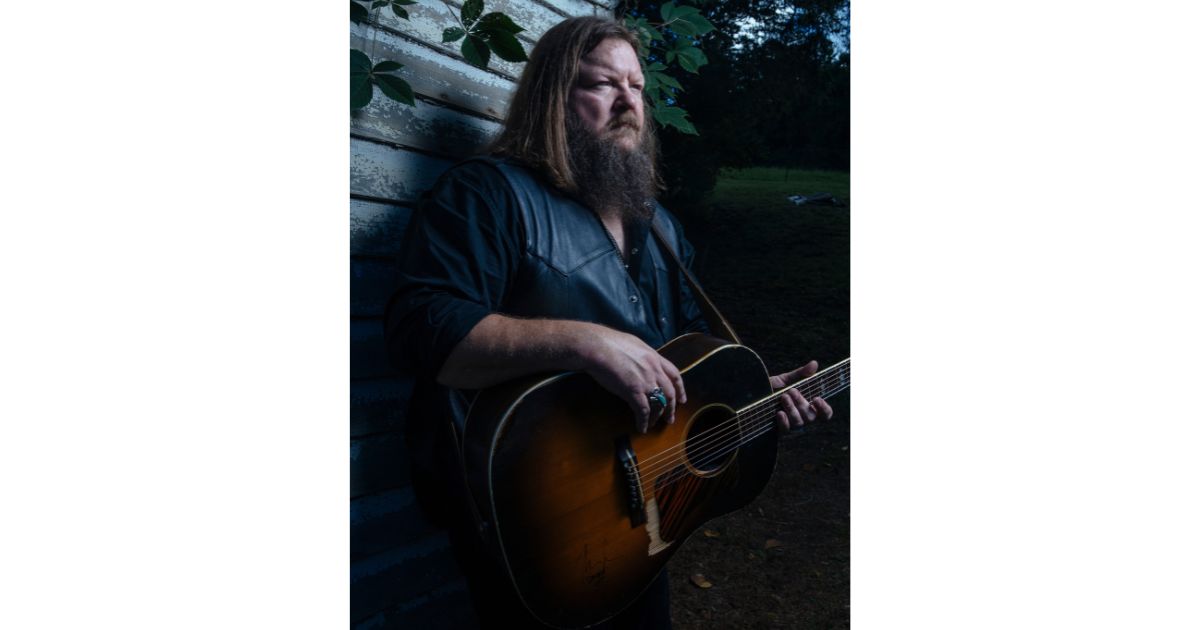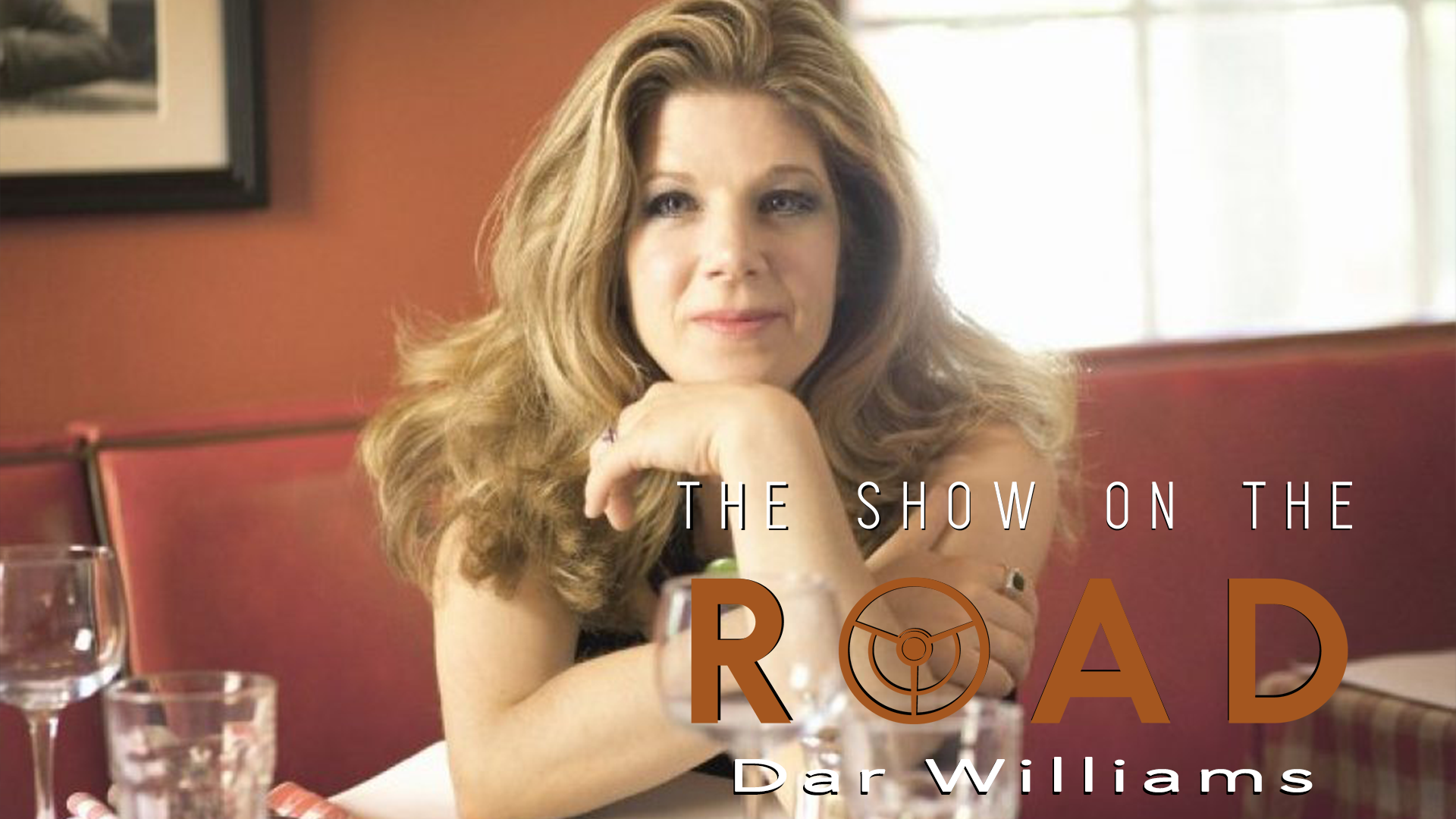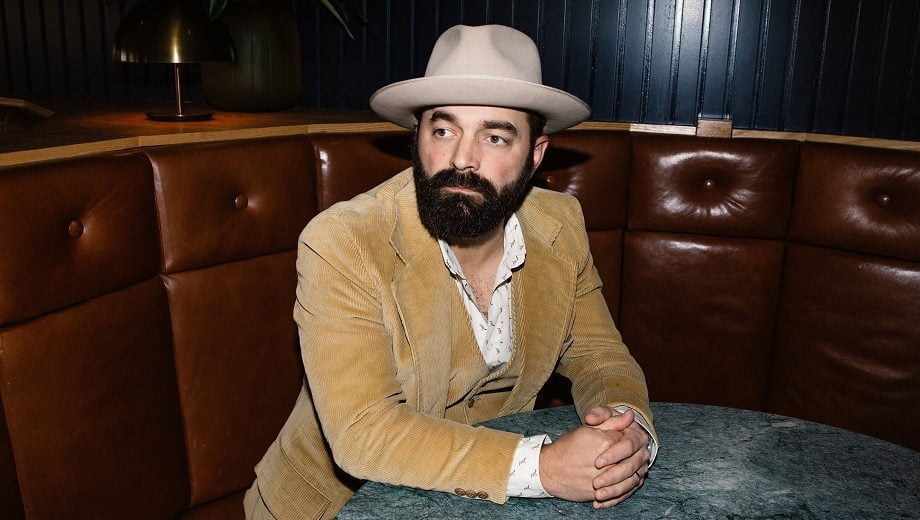With brutally honest songs soaked in blues, booze and emotional bruising, Channing Wilson is extending the tradition of raw country music with his debut album, Dead Man. Trading in pickup trucks and cut-off jeans for battles with depression, anxiety and addiction, he’s emerging with a style that echoes tormented tunesmiths like Guy Clark and Billy Joe Shaver, among others. But while his Dave Cobb-produced debut marks the first real batch of original tunes, this Georgia native is no newcomer.
Wilson’s been a working songwriter for almost two decades now, even scoring a No. 1 country single with Luke Combs’ “She Got the Best of Me” in 2018. He’s also a writer on Combs’ current chart climber, “Growin’ Up and Gettin’ Old,” and both tunes share an element of hard-truth reflection that’s rare in the country mainstream. But Channing’s own tunes go much further.
With Dead Man alive and kicking, Channing spoke with The Bluegrass Situation about his craft – discovering his songwriting heroes, bringing the blues back to country, and how a “bullshit” song sent him down a new path.
BGS: Can you tell me how you got into this gritty style of country music? It’s not exactly easy to find if you’re not looking for it.
Wilson: Yeah, I grew up in Georgia, and if it wasn’t on the radio, I didn’t know about it, you know? There were no clubs to go see new music or anything, so it took a while for me. I was into my 20s really. But I did have a friend who was one of those music-snob guys, and he’d heard that I was trying to write songs. He made me a mixtape that had Billy Joe Shaver and Guy Clark and Steve Earle and Ray Wylie Hubbard, mixed in with, like, Tom Waits, and it was just full of the best songwriters there were. So, it was literally like, “Where’s this shit been my whole life?”
I bet. That’s funny. You had already been writing by then though, huh?
Yeah. Well, I was trying. My dad was a huge Hank Williams Jr. fan, and I grew up listening to Waylon and Willie – just the stuff that was big, you know? But then the same guy that made me the mixtape, what really kick-started it for me was two particular shows he took me. One was Billy Joe Shaver, in a room with about 40 people with Eddy Shaver on guitar. And then the next week Hank Williams III was in town, and he took me to that show. And right after that, I just quit my job.
You came to Nashville for good around 2009, right? What was it like getting yourself established in the songwriting community?
I mean, I got a publishing deal pretty quick, I ain’t gonna lie. It was within a month or two of being there, I signed a songwriting deal over at EMI Publishing. But honestly, I didn’t even know what a publishing deal was at the time. I had to look it up, and I seen they had Guy Clark on the roster, and I said, “Well, shit. If he’s over here writing songs, then it has to be pretty cool.” I literally based my business decision on the fact that Guy Clark was a songwriter there.
I’ve heard worse ideas … So how did you end up with this raw writing style? You are not afraid to dig into the rougher side of life at all. Does that come from personal struggle?
What changed me was listening to stuff by Guy Clark for the first time, or Townes Van Zandt, and knowing that it was OK to write a song like that. I think when I got turned onto their music, it showed me that there really are no rules to it. And once I had that license to do literally whatever I wanted, what you’re hearing now is what happened.
You’ve talked about things like depression and anxiety, and how in music, that used to be called “the blues.” Do you feel like we need a blues-music revival for this current era?
One hundred percent, man. I mean, when people think about blues music, you think of Mississippi John Hurt, you think of Lightnin’ Hopkins, Howlin’ Wolf. You think of the Mississippi Delta, but the truth of it is, all of what they sang about is still around.
Where did “Drink That Strong” come from? It really sets the stage for what you do.
It actually come from one of these crazy Music Row songwriting sessions I used to do. Mine were always different because I never really cared about writing for country radio, but when you’re in a publishing deal, you know, they want you out writing songs as much as you can. I was with a buddy of mine named Houston Phillips … and in my head, I just I heard the hook, “The weed gets me high / And the cocaine don’t last long / And they don’t make a drink that strong.” It was supposed to be a song about quitting drinking, but it just makes me wanna drink every time I hear it. [laughs]
That’s a really cool line. But yeah, that probably won’t make it on the radio anytime soon.
Yeah. I’m definitely not mad about that either.
What about “Gettin’ Outta My Mind”? It’s in a similar vein, and I love this idea that you’re “done walking the line.” Is that something that you’ve said to yourself before?
Pretty much every day! [laughs] I’ve always been the guy that just wants to have a little more fun, and when you get me and Kendell Marvel both in the same room together, stuff like that happens. We wanted to rock a song just for us. You know, for that honky-tonk kinda thing.
Tell me about “Dead Man Walking.” This one’s got a ton of gospel in it.
I grew up singing in the church, so I’ve definitely got that in me. But it really come from listening to Howlin’ Wolf. It started off as a blues song, but Dave took it and really opened it up.
Maybe people don’t realize how closely related gospel and the blues are?
That’s the thing. Just like the thin line between love and hate, there’s a thin line between church and the bars, you know?
The last song on the record is so telling. It’s called “Trying to Write a Song,” and I love the hook. “I’ve been trying to write a song / Something bold, something real / But there’s a shit pile of denial / In the way of how I feel.” How do you overcome the shit pile?
Writing that song, that saved my life that day, brother. I ain’t gonna lie. … This was 2015 or ‘16, and my phone wasn’t ringing, man. Nobody in Nashville really gave a shit. I knew I could go to any bar for the rest of my life and play music. That’s not a problem. But I wanted to make an impact on country music, something I really, really love, and that’s given me a life. But I was at my wits’ end in this town.
To be honest with you, I had this write coming up with a bigger country artist that had radio hits and stuff, and getting to write with somebody that’s on the radio could change a lot for you. Especially if a song actually makes it to the radio, you know? I was trying to come up with some ideas and [laughs] dude, everything I was saying was bullshit, you know? I had a couple ideas going, and I just tore up and threw the pages away.
So I’m sitting there by myself at my kitchen table, and I just said, like, “What’s the truth right now?” And the truth, I just wrote it down – “I’m trying to write a song.” I sat there and just had a breakthrough moment in my mind, and it was really the moment that changed directions for me and got me back on track, and reminded me why I was doing this to begin with. When it come time to round the album off, I played that song and Dave just stopped me a minute into it, and he just said, “This is it. Let’s record it.”
How did the write with the country singer go?
I canceled it. I couldn’t do it after that. I was just like, “I can’t do this shit.” I knew I’d find a different way.
Photo Credit: David McClister






